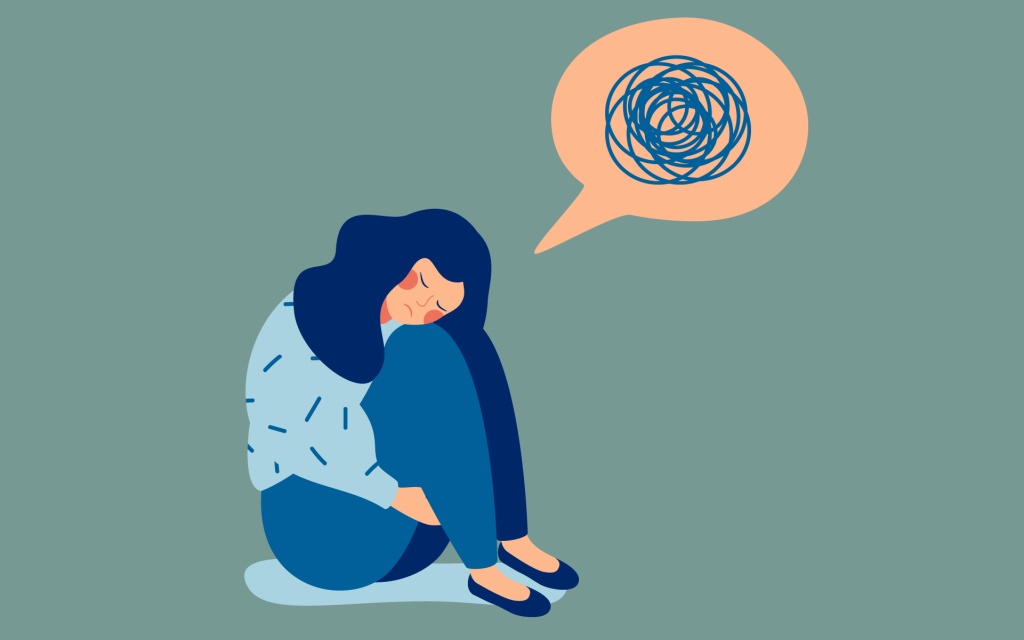Generalized anxiety disorder is a condition that makes you feel very anxious. It can make it hard to do things, like go to school or play with friends. When you have anxiety, you can try to understand it. Then when you need help, you won’t avoid getting it. In this article, we will discuss some things you can do today to start managing your symptoms!
Contents
- 1 What Is Generalized Anxiety Disorder?
- 1.1 Symptoms Of Generalized Anxiety Disorder
- 1.2 What Causes Generalized Anxiety Disorder?
- 1.3 Effect Of Generalized Anxiety Disorder
- 1.4 Diagnosis Of Generalized Anxiety Disorder
- 1.5 Treatment Options For Generalized Anxiety Disorder
- 1.6 Medications For Generalized Anxiety Disorder
- 1.7 Self-care Techniques
- 1.8 Helping Someone To Deal With Generalized Anxiety Disorder
- 2 Conclusion
- 3 A Word From Therapy Mantra
What Is Generalized Anxiety Disorder?
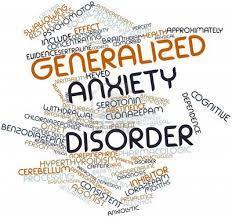
Generalized anxiety disorder is a condition that affects the way you feel, think and react. It causes excessive worry about situations or activities. Generalized anxiety disorder is when people have anxiety for more than one day, usually in a month. People with GAD may be worrying constantly without even realizing it. They may also have physical symptoms, like chest pain, headaches, or nausea.
Symptoms Of Generalized Anxiety Disorder
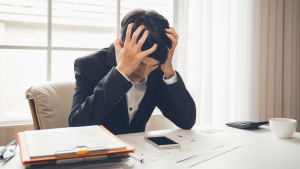
- Feeling of dread and worry for more than one month: People with GAD feel guilty, worthless, and helpless. They may also have physical symptoms such as trouble sleeping or eating due to worry.
- Generalized anxiety disorder often leads to difficulty in daily activities: People who suffer from anxiety usually worry about things. They can’t do everyday tasks because they worry about everything.
- Generalized anxiety disorder causes stress: People with GAD are more sensitive to stressful situations that may cause them to worry. When they feel overwhelmed, they will experience physical symptoms and excessive worrying.
- Not able to control worrying about things that are out of your hands (phobias): People with GAD may want to control their worries, but they don’t know-how.
- Getting stressed out over little things: People who have anxiety get stressed and worried when they think of a problem that is not fixable. For example, if someone has a bad experience in the past, then they will be stressed about it. When people go to social situations like job interviews, they worry about being embarrassed. They are afraid that people will remember the bad things that have happened in the past.
- Physical symptoms like fatigue, restlessness, nausea, trouble concentrating, or muscle tension: People with GAD often have physical symptoms that make it hard for them to concentrate or sleep.
What Causes Generalized Anxiety Disorder?
Generalized anxiety disorder is caused by a chemical imbalance in the brain. When you feel an emotion, it affects your body and minds differently. The feelings that are not controlled will cause some people to have negative thoughts about themselves. This can lead to fear of new situations or activities.
All kinds of emotions affect everyone’s body differently. People with GAD feel physical symptoms that make it hard to do things. When you are feeling anxious, your body feels tense and nervous. People can feel different ways. It depends on the situation they are in or how difficult the situation is.
Effect Of Generalized Anxiety Disorder
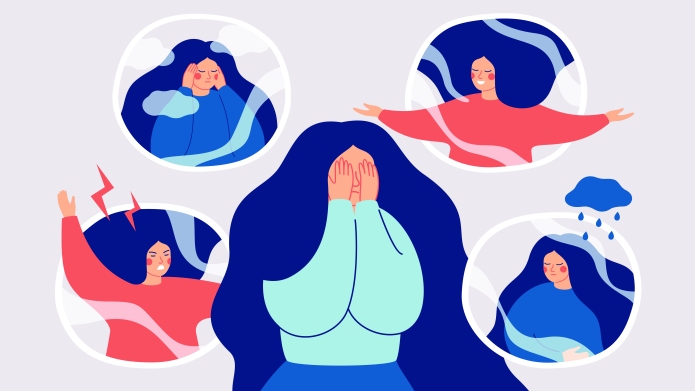
Generalized anxiety disorder or GAD is a common and treatable condition. These are the signs of this condition:
- Difficulty in controlling worries and fretting over issues without reason, which causes distress to the individual.
- Anxiety spreads across various situations such as work, school performance, social events, and even personal life at home.
- The person experiences physical symptoms such as tension headaches, fatigue, restlessness, muscle aches, and gastrointestinal problems.
- There is a feeling of constant worry that something bad will happen which can be accompanied by obsessive thoughts or images.
- When left untreated, GAD can lead to depression and other mental health conditions. It is important to seek help if the condition progresses.
- GAD can be treated with medication and cognitive behavioral therapy or CBT which is a type of talk therapy that helps individuals understand their worries, develop better ways to handle them, and change negative thinking patterns. The person then learns how to apply new techniques in daily life situations as well as make lifestyle changes such as diet, exercise, and relaxation techniques.
Diagnosis Of Generalized Anxiety Disorder
Mental health professionals use the Diagnostic and Statistical Manual of Mental Disorders or DSM-IV to diagnose GAD. There are several diagnostic criteria that must be met for a person to have this condition.
Generalized anxiety disorder is characterized by excessive worry about multiple events, issues, or activities over at least six months with some symptoms present in most situations.
The worry is not what you might expect in a normal situation. It causes you to be very upset and makes it difficult for you to do things.
Treatment Options For Generalized Anxiety Disorder
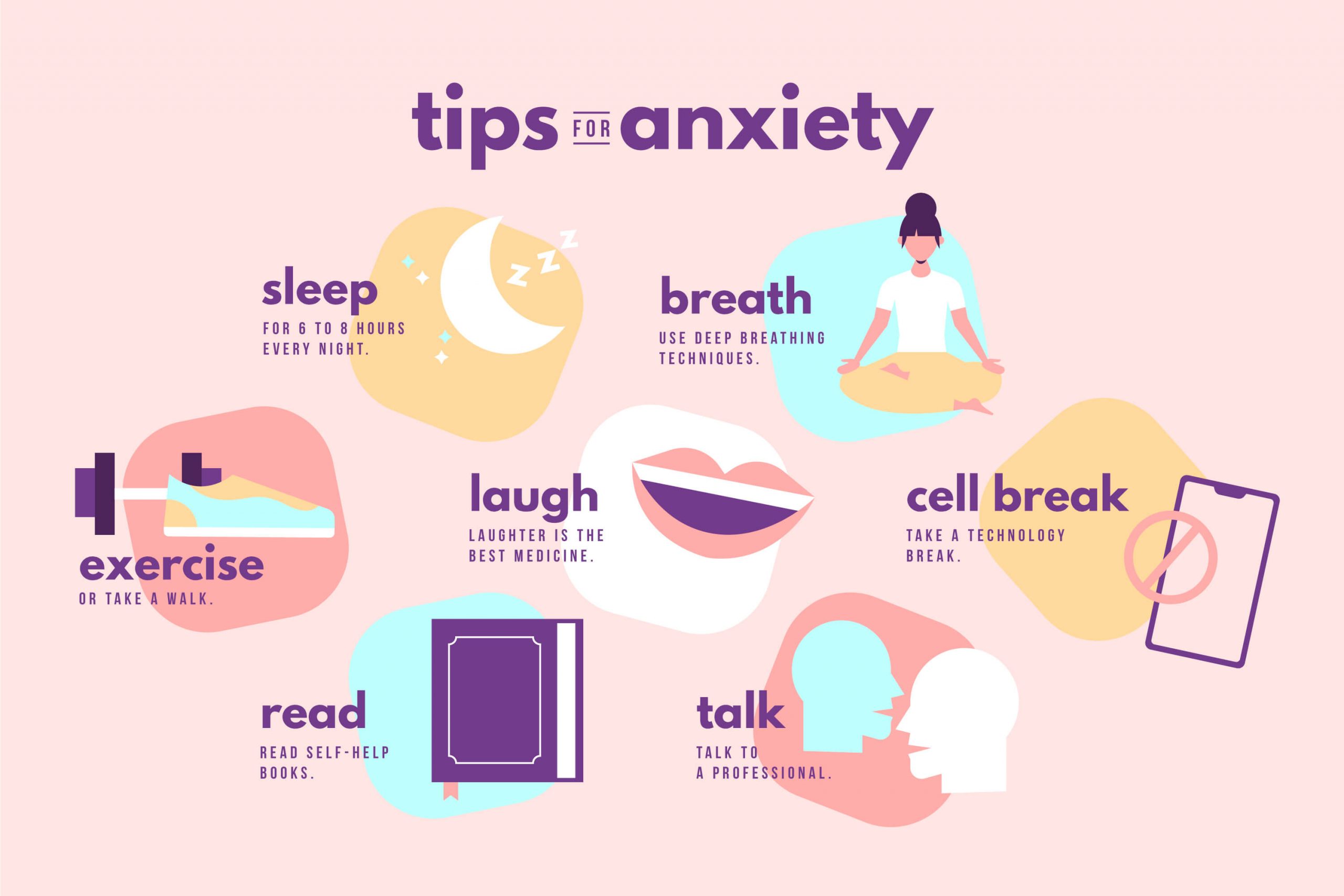
For mild cases, the person can try to manage his or her anxiety with lifestyle changes. These include:
- Cognitive Behavioral Therapy – Here, a therapist will help you understand why you’re worried and what to do when you’re worried. They will show you how to not worry about things that might not happen. This is done through short sessions where the client talks about their thoughts and feelings, followed by homework assignments.
- Exercise – Exercise releases endorphins, which are hormones that make you feel good. Endorphins help reduce stress and anxiety levels.
- Diet – Eating a balanced diet helps your body to function better both physically and mentally. When you’re anxious, it’s important to eat regular, balanced meals and to avoid caffeine, alcohol, and sugary foods.
- Sleep – Getting enough sleep is essential for good mental health. Most people need around eight hours of sleep per night. If you don’t get enough sleep, talk to your doctor. They can help you find ways to improve your sleeping habits.
- Relaxation Techniques – Relaxation techniques such as yoga, meditation, or deep breathing can help to calm your mind and body.
Medications For Generalized Anxiety Disorder

If lifestyle changes don’t work or if you have a more severe case of GAD, medication may be necessary. There are a few different types of medications that can be prescribed for GAD:
- Antidepressants – Antidepressants are usually the first type of medication a doctor will prescribe for GAD. These medications can take up to two or three weeks before you feel any improvement in your symptoms. Give them time to work. Antidepressants are not addictive and don’t cause withdrawal symptoms when stopped. Other drugs can be addictive and have withdrawal symptoms.
- Anticonvulsants – These medications help control seizures, but they also have an effect on anxiety. Anticonvulsants can make you sleepy or cause weight gain and other side effects. They are usually taken once a day in the evening with food.
- Benzodiazepines – This type of medication is used to treat panic attacks (feeling like something bad is going to happen when it’s not) and other symptoms of anxiety. Benzodiazepines work fast, usually within an hour or less, but they can be addictive. They are also very easy to overdose on which can cause death if left untreated so this should only be taken under a doctor’s supervision with regular visits for monitoring.
It is important to seek help if the condition progresses. If a person is suffering from a generalized anxiety disorder, it is important to talk with their doctor about treatment options.
Self-care Techniques
Self-care is an important part of managing any mental health condition, including generalized anxiety disorder (GAD). There are many self-care techniques that can be helpful for people with GAD. Some of the most effective self-care techniques include:
- Practicing mindfulness meditation or other relaxation techniques daily: This can be very helpful for reducing anxiety and stress. It allows you to step back from your thoughts, which is a powerful tool in managing GAD.
- Reading self-help books on dealing with anxiety: There are many great resources out there that deal specifically with a generalized anxiety disorder (GAD). Reading these types of books may help you learn new coping skills and strategies.
- Exercising regularly: Exercise is a great way to reduce anxiety and stress. It also has many other health benefits.
- Making time for yourself: This may mean taking breaks throughout the day, going on walks, or simply spending time doing things you enjoy. Taking care of yourself is essential in managing GAD.
- Getting enough sleep: Getting a good night’s sleep helps you feel better when you are anxious, especially when it is hard for you to sleep because of GAD or other diseases like insomnia. You can drink tea or take a natural supplement before bed. These things will help you to get relaxed and fall asleep. You should also make sure your sleeping environment is dark, quiet, and cool.
There are many other self-care techniques that can be helpful for people with a generalized anxiety disorder (GAD). It is important to find what works best for you and to keep using it. These techniques can help you manage your GAD and improve your quality of life. Remember, always consult with your doctor before starting any new treatment.
Helping Someone To Deal With Generalized Anxiety Disorder
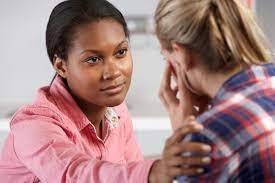
If you are trying to help a loved one or friend deal with an anxiety disorder, the most important thing is to be supportive. Encourage them and offer your advice when they ask for it.
- Remember that there may not always be something wrong: Generalized anxiety disorder (GAD) can make people believe that everything around them is unsafe or dangerous. It is important to remember that the person who has GAD may not be looking for a solution and instead needs you to listen or help them feel safe.
- Encourage self-care: One of the best ways you can support your loved one with a generalized anxiety disorder (GAD) is by helping him or her practice daily self-care. Encourage them to try relaxation techniques, exercise regularly, and get enough sleep.
- Help your loved one find treatment: Find resources for local therapists or support groups in your area that have experience with a generalized anxiety disorder (GAD). You can also look online at this website as well as the Anxiety Disorders Association of America site. There are many helpful resources that can connect your loved ones with the help they need.
- Offer support: When a person has a generalized anxiety disorder (GAD), it can be difficult to live life normally. Offer to go with them to appointments, provide transportation, or even just sit and talk with them. Let them know you are there for them.
Conclusion
People with generalized anxiety disorder often have trouble sleeping. They may also experience chronic muscle tension, worrying thoughts, and difficulty concentrating on tasks. It is estimated that about 1% of the population suffers from this condition at some point in their life. Researchers have found that people with Generalized Anxiety Disorder are more likely to have a certain gene. This gene is found in people who don’t have Generalized Anxiety Disorder. People can find out about their family history and see if they have this gene. It has a connection to other mental health problems like depression or substance abuse. Treatment options for GAD include cognitive-behavioral therapy (CBT), medications, exercise, and lifestyle changes to reduce stressors in one’s environment.
A Word From Therapy Mantra
Your mental health — Your psychological, emotional, and social well-being — has an impact on every aspect of your life. Positive mental health essentially allows you to effectively deal with life’s everyday challenges.
At TherapyMantra, we have a team of therapists who provide affordable online therapy to assist you with issues such as depression, anxiety, stress, workplace Issues, addiction, relationship, OCD, LGBTQ, and PTSD. You can book a free therapy or download our free Android or iOS app.
